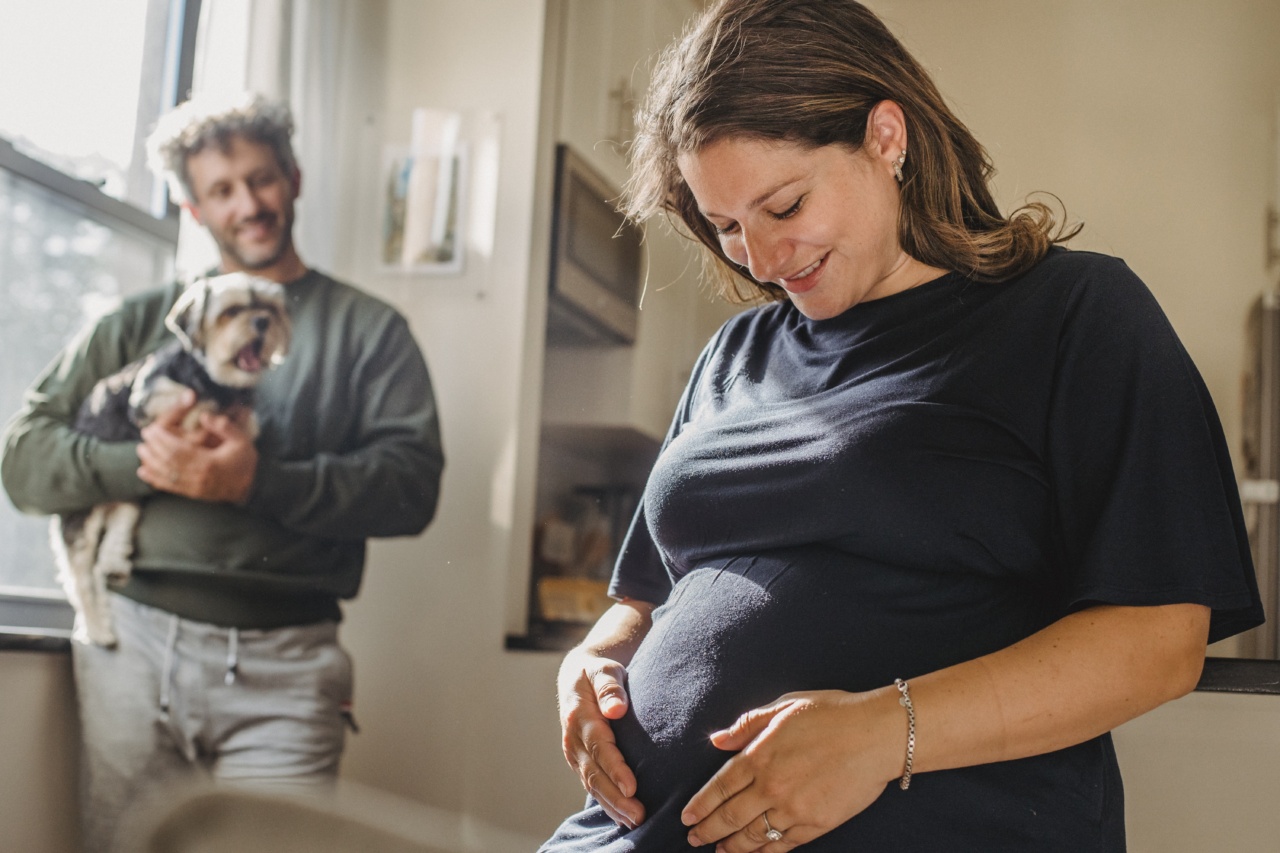Many families consider their pets as part of the family. Dogs, in particular, are known for their loyalty and affection towards their owners.
But what happens when a woman becomes pregnant? Are there any potential hazards associated with being pregnant with a dog? In this article, we will explore the possible risks and precautions that should be taken to ensure a safe and healthy pregnancy for both the mother and her furry companion.
1. Toxoplasmosis
Toxoplasmosis is a parasitic infection that can be transmitted to humans through contact with infected animals, most commonly cats. However, dogs can also carry the parasite in their feces if they have been exposed to it.
Pregnant women are especially susceptible to toxoplasmosis as it can harm the developing fetus. It is essential to maintain good hygiene practices, such as wearing gloves when handling dog waste and washing hands thoroughly afterward.
2. Allergies
Some pregnant women may develop or exacerbate allergies during pregnancy, and these allergies can include pet dander.
If a pregnant woman is allergic to dogs, she may experience symptoms such as sneezing, itching, and difficulty breathing when in close proximity to her dog. It is crucial to minimize exposure to allergens and consult a healthcare professional for appropriate management of symptoms.
3. Emotional Distress
Pregnancy can be a time of heightened emotions and stress, and this can also affect the dynamics between a pregnant woman and her dog. Dogs are highly observant and can pick up on changes in their owner’s behavior and mood.
It is important for expectant mothers to create a calm and secure environment for themselves and their pets. Spending quality time with the dog and ensuring that their needs are met can help maintain a positive relationship during this transition period.
4. Physical Safety
Pregnant women often experience physical changes that can impact their balance and stability. This can increase the risk of falls or injuries, especially when dealing with an energetic dog.
It is crucial to take precautions while interacting with the dog, such as avoiding rough play or training exercises that may involve sudden movements. Pregnant women should also enlist the help of a family member or a professional dog trainer if needed.
5. Zoonotic Diseases
While most dogs are vaccinated and protected against common zoonotic diseases, there is still a potential risk of transmission to pregnant women.
Diseases such as rabies, leptospirosis, and brucellosis can be harmful to both the mother and her unborn child. Ensuring that the dog’s vaccinations are up to date, regular veterinary check-ups, and proper hygiene practices can significantly reduce the risk of zoonotic diseases.
6. Behavioral Changes
It is not uncommon for dogs to exhibit behavioral changes when their owners become pregnant. Some dogs may become more protective, while others may become anxious or disoriented.
Hormonal changes in the pregnant woman can also affect the dog’s behavior. It is vital to closely observe any changes in the dog’s behavior and seek professional advice if needed to ensure a safe and harmonious environment for both the mother and the dog.
7. Preparing the Dog for the Arrival of the Baby
When a baby is on the way, it is important to prepare the dog for the new arrival. Introducing the dog to baby-related equipment, such as cribs and strollers, in a supervised and controlled manner can help the dog adjust to the changes.
Gradually reducing attention given to the dog and providing positive reinforcement for calm behavior can also be beneficial. Consulting a professional dog trainer or behaviorist can provide guidance on how to prepare and introduce the dog to the new family member.
8. Stress and Anxiety
Just as pregnancy can be stressful for humans, it can also be a stressful time for dogs. Changes in routine and household dynamics can lead to anxiety or stress-related behaviors in dogs.
It is important to maintain a stable routine, provide mental stimulation, and monitor the dog’s behavior for signs of distress. If necessary, consult a veterinarian or a professional dog behaviorist to address any stress-related issues.
9. Exercise and Physical Activity
Regular exercise and physical activity are important for the overall well-being of both pregnant women and their dogs. However, it is crucial to adjust the level and intensity of exercise as the pregnancy progresses.
Pregnant women should avoid activities that may pose a risk of falls or injury. Consulting a healthcare provider and a veterinarian can help determine the appropriate exercise regimen for both the mother and the dog.
10. Bonding and Companionship
Despite the potential hazards and challenges, having a dog during pregnancy can also be a source of comfort, companionship, and emotional support. Dogs can exhibit remarkable empathy and provide emotional stability to pregnant women.
Taking time to bond with the dog, involving them in prenatal activities, and seeking professional advice can help nurture a strong and positive bond between the mother, the dog, and the baby.






























